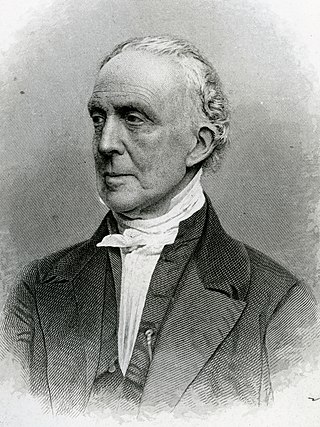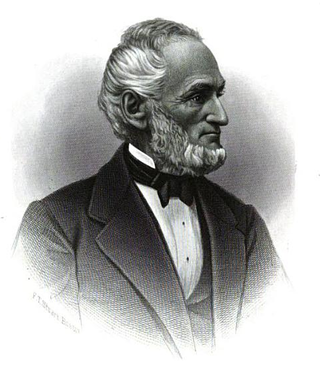| |||||||||||||
| |||||||||||||
| |||||||||||||
The 1826 Boston mayoral election saw the reelection of incumbent Josiah Quincy III to a fifth consecutive term. It was held on December 11, 1826. [1] His opponent was George Blake, the U.S. district attorney for District of Massachusetts.
| |||||||||||||
| |||||||||||||
| |||||||||||||
| Elections in Massachusetts |
|---|
 |
The 1826 Boston mayoral election saw the reelection of incumbent Josiah Quincy III to a fifth consecutive term. It was held on December 11, 1826. [1] His opponent was George Blake, the U.S. district attorney for District of Massachusetts.
| Candidate | Votes | % | |
|---|---|---|---|
| Josiah Quincy III (incumbent) | 3,163 | 62.76 | |
| George Blake | 1,750 | 34.72 | |
| Scattering | 127 | 2.52 | |
| Total votes | 5,040 | 100 | |

Harrison Gray Otis, was a businessman, lawyer, and politician, becoming one of the most important leaders of the United States' first political party, the Federalists. He was a member of the Otis family.

Josiah Quincy III was an American educator and political figure. He was a member of the U.S. House of Representatives (1805–1813), mayor of Boston (1823–1828), and President of Harvard University (1829–1845). The historic Quincy Market in downtown Boston is named in his honor. A panel of 69 scholars in 1993 ranked him among the ten best mayors in American history.

George Sylvester Taylor became the first mayor of Chicopee, Massachusetts, on January 5, 1891.

Linus Bacon Comins was a Massachusetts politician who served as Mayor of Roxbury, Massachusetts and as a member of the United States House of Representatives from Massachusetts from 1855 to 1859.

Amasa Walker was an American economist and United States Representative. He was the father of Francis Amasa Walker.

John Phillips was an American politician, serving as the first mayor of Boston, Massachusetts, from 1822 to 1823. He was the father of abolitionist Wendell Phillips.

Martin Brimmer was an American businessman and politician, who served in the Massachusetts House of Representatives, in the Boston Board of Aldermen, and as the mayor of Boston, Massachusetts.

Benjamin Seaver was an American politician, serving as the thirteenth mayor of Boston, Massachusetts from January 5, 1852 to January 2, 1854.

Jerome Van Crowninsfield Smith was an American physician, author and politician, serving as the fourteenth mayor of Boston, Massachusetts from 1854 to 1855.

Nathaniel Bradstreet Shurtleff Sr. was an American politician, serving as the twentieth mayor of Boston, Massachusetts from January 6, 1868, to January 2, 1871.
The Boston mayoral election of 1907 was held on Tuesday, December 10, and saw Republican nominee George A. Hibbard defeat Democratic incumbent John F. Fitzgerald as well as Independence League nominee John A. Coulthurst. Ahead of the general election, primary elections for each party had taken place on Thursday, November 14, 1907.
The Boston mayoral election of 1854 saw the reelection of incumbent mayor Jerome V. C. Smith. It was held on December 11, 1854.
The Boston mayoral election of 1855 saw the election of Alexander H. Rice. It was held on December 10, 1855.
The Boston mayoral election of 1861 took place on Monday, December 9, 1861, and saw the reelection of Joseph Wightman.
The Boston mayoral election of 1872 saw the election of Republican nominee Henry L. Pierce, who narrowly unseated incumbent Democratic mayor William Gaston.
The Boston mayoral election of 1874 saw the reelection of Samuel C. Cobb.
The Boston mayoral election of 1875 saw the reelection of Samuel C. Cobb to a third consecutive term.
The Boston mayoral election of 1878 saw Republican Frederick O. Prince elected to return the mayoralty for a second nonconsecutive term. He defeated Democratic nominee Charles R. Codman and Greenback contender Davis J. King.

The Boston City Charter is a series of State statutes which codifies a system of rules for the government of the City of Boston, Massachusetts. The Charter is not a typical city constitution but rather a series of amendments, General Court rulings, and case law which form the basis of government. The central organs of the Boston City Charter are the Mayoral Office and City Council. The composition of these offices, their term length, manner of election, and scope of power have changed throughout the years.